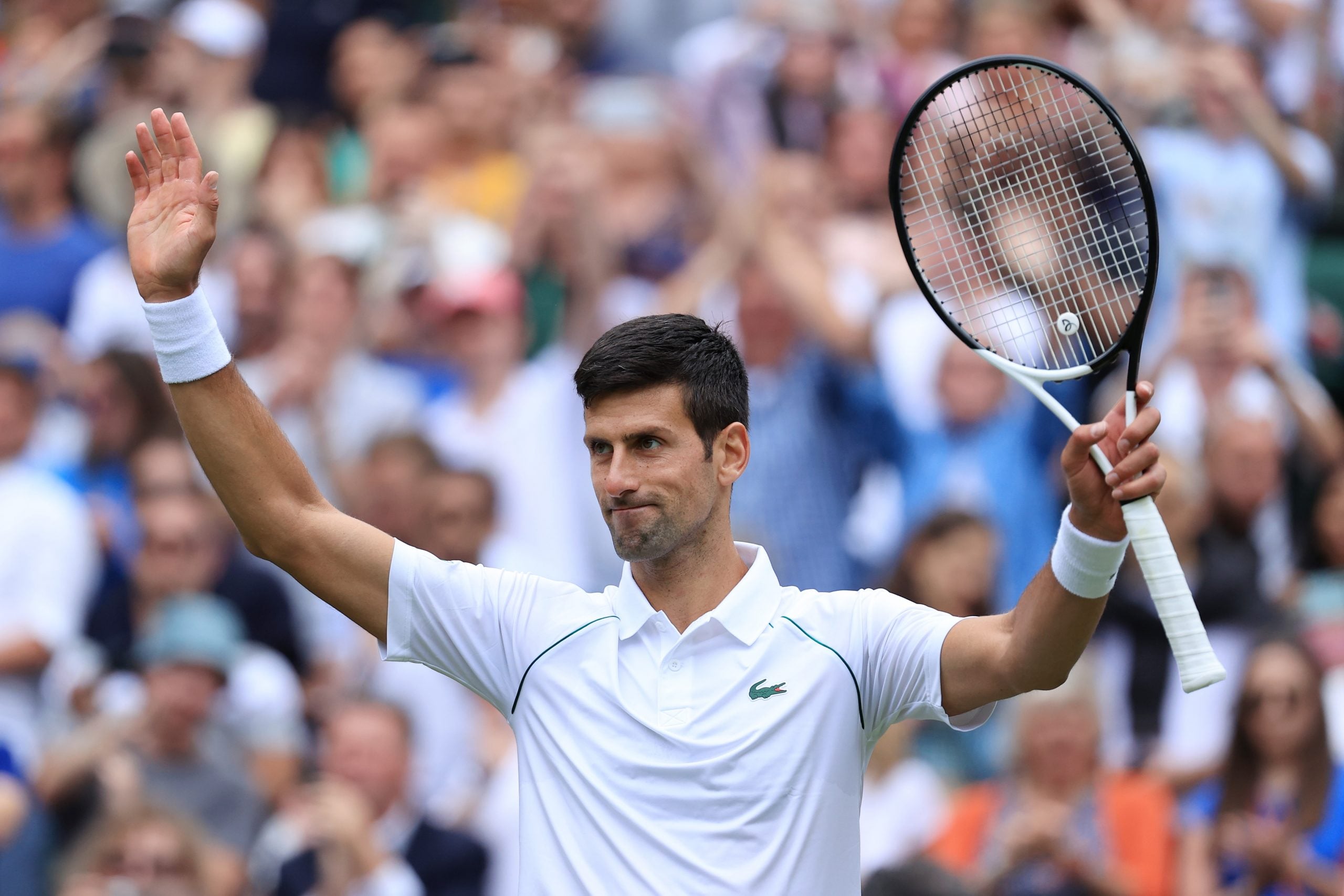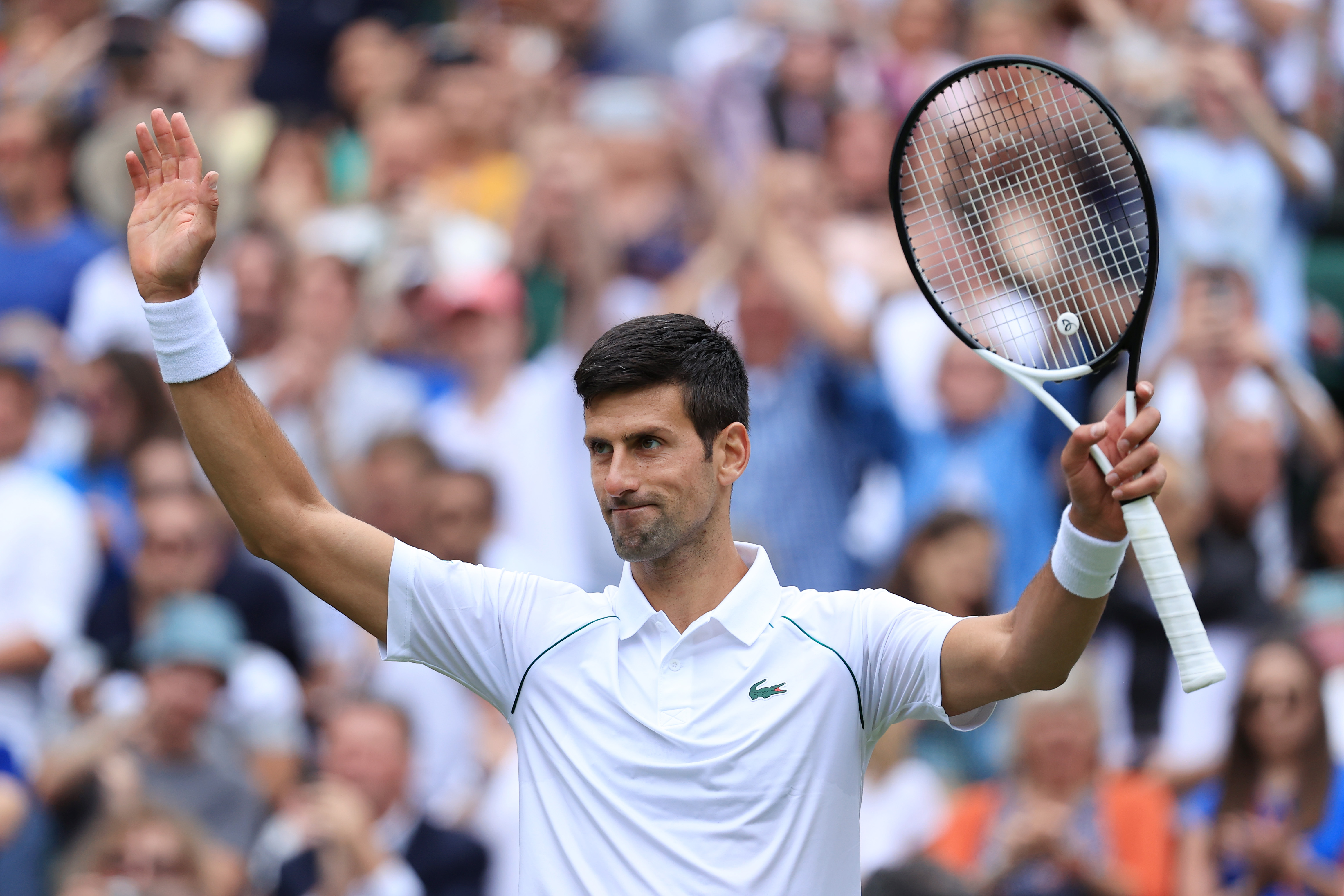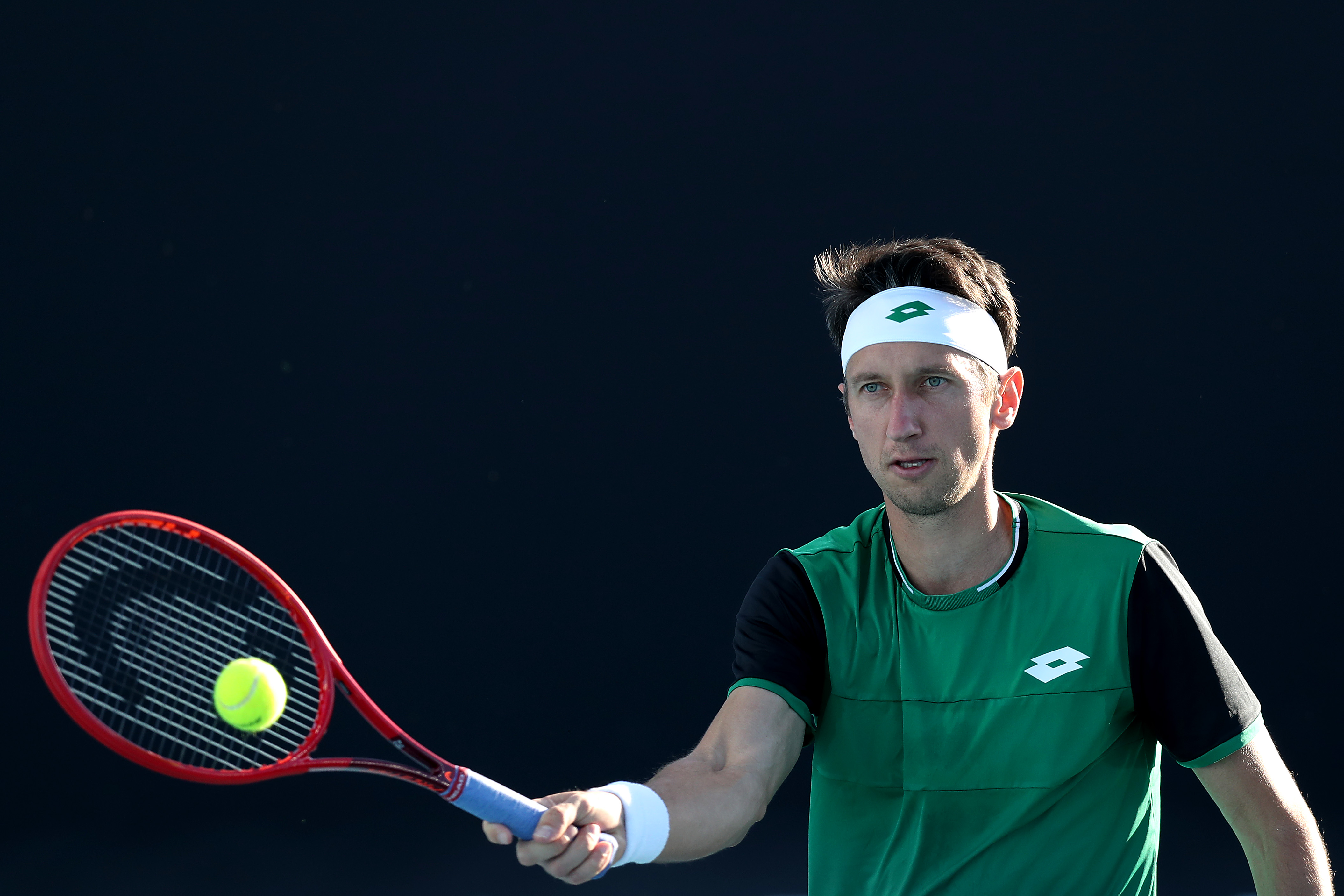
Novak Djokovic Opens Up About Traumatic Childhood: ‘It Was a Horrifying Experience’
Novak Djokovic‘s name is often mentioned with other all-time greats in his sport like Rafael Nadal and Roger Federer. The Serbian tennis pro has stated that his tough childhood is what made him a fighter and able to compete with the best of the best on the court.
Here’s what Djokovic said about the war when he was growing up and what he’s done to support another tennis player fighting in Ukraine.

Djokovic recalls bombings and hiding in a shelter
Djokovic’s childhood memories include what his family went through during the war in Yugoslavia and the bombing of Belgrade. In an interview with Graham Bensinger, the athlete recalled the horrific experience as an 11-year-old kid hiding in the shelter of his grandfather’s apartment.
“In 1999, when we had the bombings, we lived in an apartment 500 feet from here,” Djokovic explained. “We would come to this building every single night of (the) bombing because our building did not have a shelter … People would just hide in corners and try to find a safe space … It was a horrifying experience for everyone. Particularly for children. We did not understand what was happening.”
The athlete also spoke about one memory that’s never left him.
“It was the first or second night of bombing. We were just about to fall asleep, when a huge explosion happened,” he shared. “My mom stood up very quickly and hit her head, falling unconscious. We were crying because of the bombs, because mom was not responding. Luckily my dad managed to help my mom get back to normal. We collect[ed] our stuff and go [outside]. It was so loud, we couldn’t hear each other. My dad was carrying my brothers. My mom was carrying other stuff and that’s when I slipped. When I looked towards the building, I saw the planes flying, dropping things, and the ground shaking. That is one of the most traumatic images I saw in my childhood. It stays with me.”
He’s moved on now and has a new ‘philosophy of life’
Djokovic admitted that he was angry about what happened in his youth for a long time and allowed that to drive him on the court. Now though he has a new “philosophy of life.”
“I used that anger in a way that fuels me to be successful in tennis,” he revealed. “But that changed. I really don’t have this emotion anymore. I will not forget what happened, but at the same time I don’t think it’s good for anybody to be stuck in the emotions of hatred, anger, rage,”
Ukrainian tennis player says Djokovic’s support is special because he ‘completely understands’

Some of what Djokovic described sounds familiar to what people in Ukraine have been going through since Russia invaded that country on Feb. 24, 2022.
Sergiy Stakhovsky, the former world No. 31 and the man who ended Federer’s historic streak for an eighth Wimbledon crown in 2013, was vacationing with his family in Dubai when the war began. He and his family traveled back to Budapest in Hungary where they live before he decided to leave his wife and children behind and join fellow Ukrainians on the front lines.
Stakhovsky reached out to the tennis community to help financially support the Ukrainian armed forces and a few players including Djokovic answered his calls. Stakhocsky told Eurosport that the Serbian star “completely understands” the war in Ukraine because he “lived through hell when he was young.”
Stakhovsky shared a Whatsapp message on social media from Djokovic that read: “Stako, how are you man? Are you on the field? Think of you, hoping all calms down soon. Please let me know what would be the best address to send help, financial help, any other help as well.”
The Ukrainian player turned military volunteer revealed that Djokovic’s support matter so much to others in the country who will see “that he understands, that he condemns what’s going on, that’s the most important part — raise the spirit of the Ukrainians a bit.”


